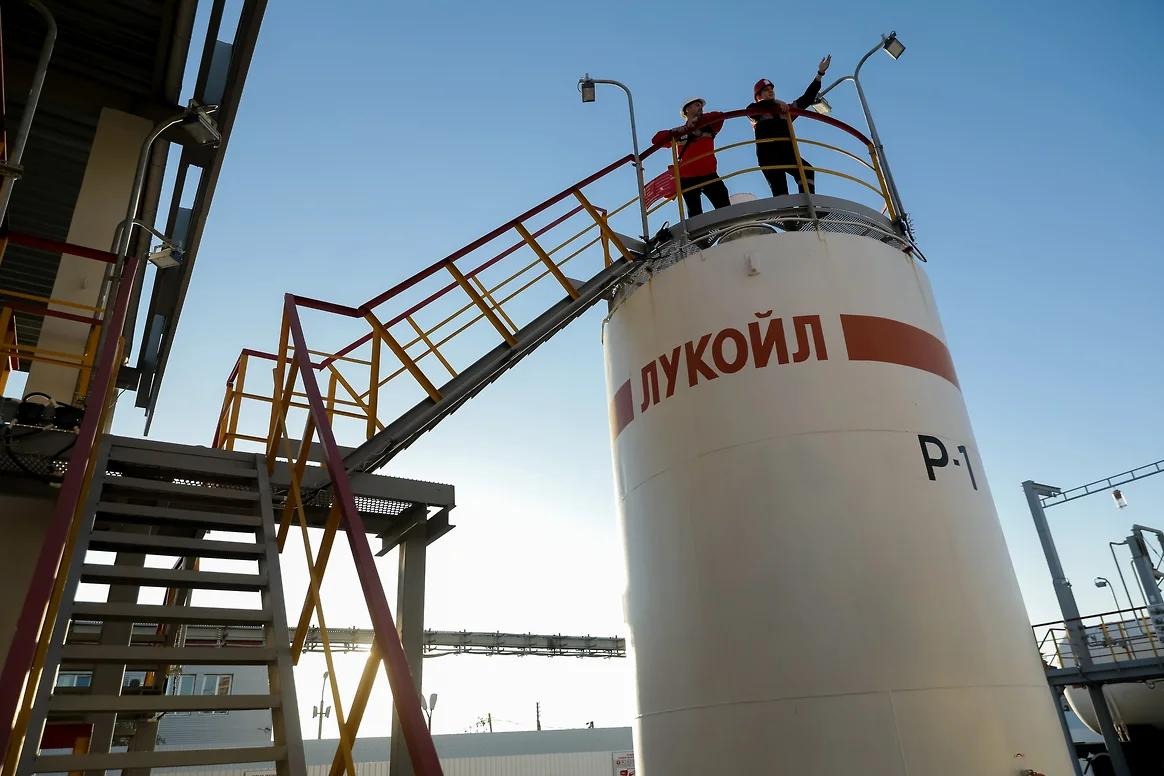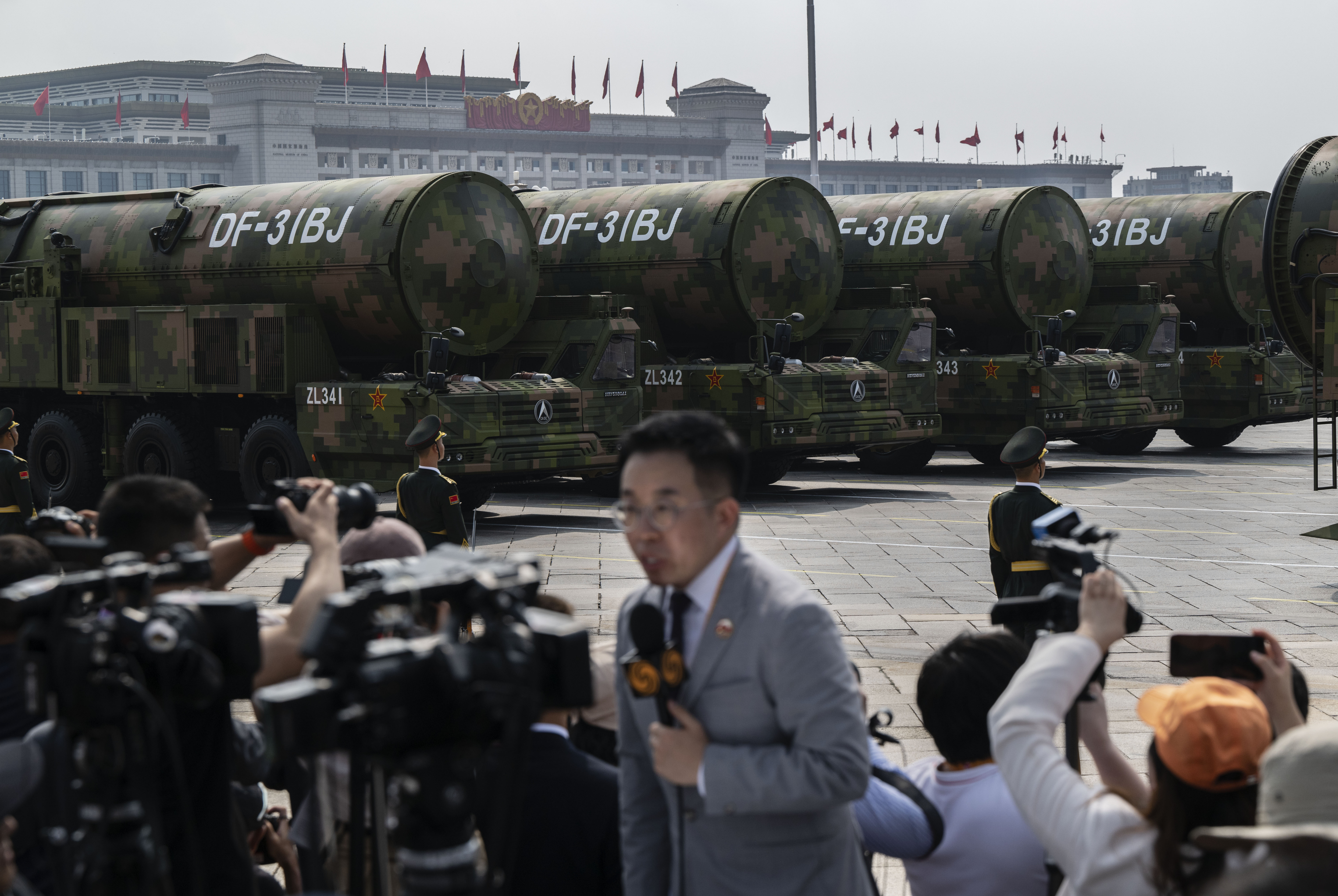KADYROV GOVERNMENT DEMANDS FEDERAL CONCESSIONS
KADYROV GOVERNMENT DEMANDS FEDERAL CONCESSIONS
Nezavisimaya gazeta reported on March 22, the Chechen parliament on March 21 called on the federal authorities “to change the existing mechanism for forming and distributing profits from oil extracted on Chechen territory.” The deputies complained that revenues from the export of Chechen oil are not being used to rebuild the republic or fund social programs.
In addition, Chechnya’s government is demanding that the republic be given the status of a free economic zone. Itar-Tass on March 20 quoted from a statement by Kadyrov marking the third anniversary of the Chechen constitution’s adoption: “The Chechen people made their choice—to live within the structure of the Russian Federation—and the elected parliament completed the formation of the classic design of the state power. Now our republic needs a free economic zone.” Kadyrov said his government aims to move the republic into “leading positions in the Russian Federation [in terms of] economic development and standard of living.” Chechen President Alu Alkhanov, for his part, said on March 20 that “the federal authorities devote much attention to the republic, the volume of financing increases with each year, but it is necessary to find new approaches that will allow making the lives of the Chechen people better.” According to newsru.com, the Chechen leadership believes these “new approaches” should include the federal authorities returning to Chechnya oil that was extracted on its territory.
Meanwhile, the first deputy chairman of the People’s Assembly, the lower house of Chechnya’s parliament, Zambek Zalzaev, said on March 20 that the republic’s parliament plans to ask the federal authorities to give the republic a controlling stake in Grozneftegaz, the local affiliate of the Russian state oil company Rosneft. “The republic currently has 49 percent of the shares in that affiliate; it needs only 2 percent to have a controlling stake,” Zalzaev said. The parliament has also called on the federal authorities to transfer the license for developing Chechnya’s oil and gas fields from Rosneft to Grozneftegaz. Madina Dedieva, an expert with the Chechen Economics Ministry, told Nezavisimaya gazeta that giving the Chechen government a controlling stake in Grozneftegaz “will help activate the rebuilding process in the republic and the rational use of funds from the sale of Chechen oil.” She noted that while Grozneftegaz helps extract oil, all but 172 million rubles a year (approximately $6.2 million) of the revenues from sales of the oil goes to the federal government for redistribution. “We are suggesting that all funds from the sale of Chechen oil be transferred to the Chechen government into the republic’s budget,” she said.
Dmitry Oreshkin, head of the Mercator Group think-tank, however, told Nezavisimaya gazeta he doubted Moscow would transfer control over Chechen oil extraction to Grozny. “They will simply find another form of ‘kickback,’” he said. “Recent events graphically demonstrate that Kadyrov is openly using his exclusive position and impudently milking the federal authorities. It is understood that a significant portion of these funds is divvied up among the Kadyrovites. But I don’t think they’ll give them the oil, because there is a contradiction here between the interests of the Kremlin gas-and-oil lobby and the regional clans. And, in general, nothing has changed. Here, as before, an inside-out empire is being built, in which the metropole does not receive resources from the colony, but, on the contrary, the latter extorts funds from the Center in an open racket.”
Meanwhile, the Chechen parliament on March 16 rejected the draft budget introduced by the Chechen government on the grounds that the level of federal subventions mentioned in the draft—19 billion rubles, or nearly $686 million—was insufficient to meet the republic’s demands and was lower than in neighboring republics, Kavkazky Uzel reported.
In an interview with the federal government’s Rossiiskaya gazeta newspaper published on March 22, Ramzan Kadyrov said his government is seeking an additional 5 billion rubles (approximately $180 million), noting that the three southern Chechen districts of Sharoi, Shatoi and Itum-Kale do not have their own district hospitals.


